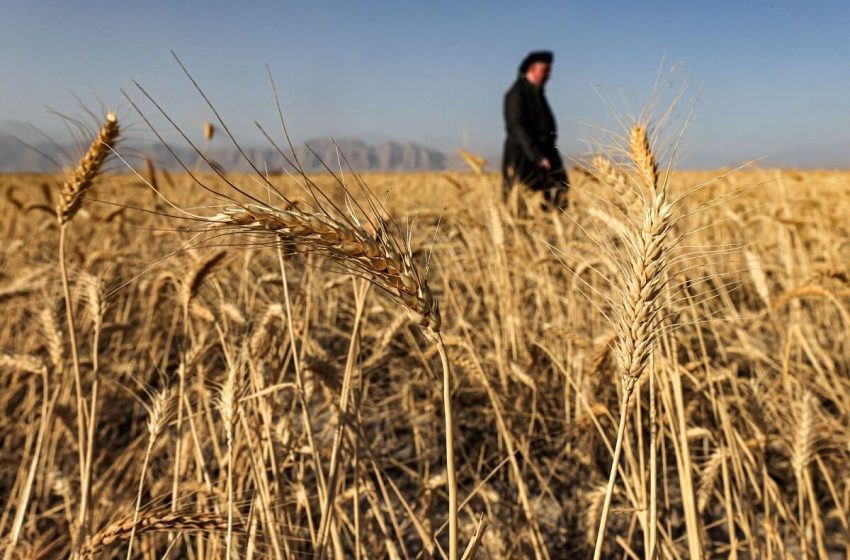Iraq will not import wheat in 2024

A farmer inspects his wheat farm near Sulaimaniyah, Iraq. Photo: AFP
Baghdad (IraqiNews.com) – The Iraqi Minister of Trade, Atheer Al-Ghurairi, said that Iraq does not plan to import wheat this year because the country has large stocks sufficient for seven months with expectations of a bumper crop.
Al-Gurairi’s remarks come after the US Ambassador to Iraq, Alina Romanowski, mentioned in late December that Iraq’s increasing population wants more wheat for Iraq’s delicious breads.
“The Iraqi government is trying to increase national wheat production. Yet, Iraq’s wheat supply does not meet the demand,” Romanowski said.
“Wheat production dropped slightly to 3.9 million tons for 2022-2023, while predictions for wheat imports increased to 3.8 million tons for 2023-2024,” the US Ambassador to Iraq stated.
“The Iraqi government strives to meet Iraq’s increasing population’s wheat demand with national production but relies on wheat imports as well,” Romanowski added.
Al-Gurairi told Bloomberg News that the country has two million tons of wheat reserves, explaining that this year’s harvest season is scheduled to begin by April as usual, where wheat production is expected to be better than last year.
“There is no need to import wheat this year,” the Iraqi Trade Minister said during his participation in the Baghdad International Fair.
The Iraqi Ministry of Agriculture mentioned earlier that Iraq, where the population is 43 million people, requires between 4.5 million and 5 million tons of wheat every year.
The huge yield produced in 2023 reflects the shift towards cultivating wheat in desert areas using groundwater instead of Iraq’s decreasing river water, as the country is going through the worst drought recorded in its history.
Iraq was self-sufficient in wheat during the three years before the war in Ukraine, with production of 4.7 million tons in 2019, 6.2 million tons in 2020, and about 4.2 million tons in 2021.
However, factors such as water scarcity and desertification led to a decrease in the local production of wheat, which reached about three million tons last season, prompting the Iraqi government to import wheat to cover the shortfall.
